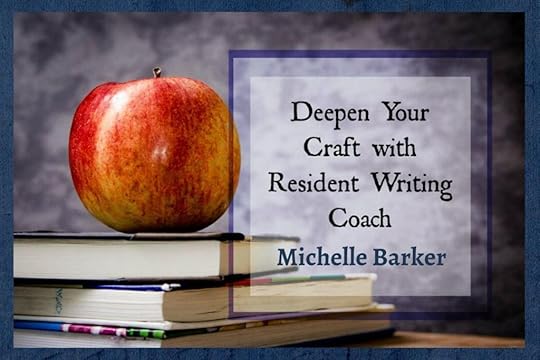Creating Suspense in any Genre

When we think about suspense in writing, we naturally leap to thrillers and mysteries, genres that are known for suspense and rely on it. But that doesn���t mean the rest of us are off the hook. Suspense is an essential element in any story. Whenever we create a feeling of anticipation (or dread) that something dangerous or terrible is about to happen, we increase the odds that our reader will keep turning pages.
There���s suspense in romance: will the boy win over his crush?
There���s suspense in humor: will the joke land?
There���s even suspense in picture books: what will happen the third time little Johnny looks under the bed?
But suspense alone isn���t enough to keep your reader engaged.
Suspense Depends on ConnectionThe reader has to care about the character to care about what happens to them. If some stranger down the road is in danger of losing their job, it���s objectively sad but it probably won���t keep you awake at night. If it���s your partner, however, that���s a different story. You have a connection to that person. You care about what happens to them. You���re invested in the outcome of that problem. What will happen tomorrow at that big meeting? You can barely sleep thinking about it.
Just so in fiction. As an author, your primary job in the opening of a novel or story is to create connection. You want your reader to bond with the protagonist so that they���re invested in the character���s wellbeing. They care about what happens to them. Once you���ve done that, your job is to make the worst things either happen or threaten to happen so that your reader is on the edge of their seat hoping their beloved character will survive.
This is why it���s never particularly effective to start a novel with a car chase or a fight scene. If we don���t yet care about who these things are happening to, we won���t care how they turn out.
Suspense Depends on Future
Suspense involves the creation of anxiety in the reader over what will happen���not about what���s happening now. What���s happening in the moment involves (or should involve) either tension or conflict. Things are going wrong. Something is off. The character is uneasy. People aren���t getting along.
This is why foreshadowing and suspense go hand in hand. Foreshadowing prepares the ground for future disaster. If you don���t use foreshadowing, either your reader will feel cheated or the plot twists will seem too coincidental. But if you do foreshadow and your reader is paying attention, they���ll see the breadcrumbs and sense where they���re leading and think, No. Not that. Please not that. And voil��, you have created suspense.
Literary agent Donald Maass suggests including tension on every page. That means you should be giving your reader something to worry about on a regular basis. You should especially be doing this at the end of every chapter so that your poor reader cannot shut off the lamp and go to bed (yes, we authors are sadists).
I���m not necessarily talking about cliffhangers. While sometimes these might be appropriate, too many in a row will feel gimmicky. What I���m talking about is the creation of anxiety. The last thing you want at the end of a chapter is resolution. There is only one appropriate place for that: at the end of your novel.
Suspense Depends on RhythmPacing and suspense are soulmates. You want to draw things out just enough to keep your reader hooked. If you take too long to get the job done, they���ll drop off to sleep. If you move too quickly, they might stop caring because you���re not taking the time to develop internal conflict. And internal conflict is what makes readers care.
Suspense Depends on Playing FairI can���t count the number of manuscripts I���ve edited where an author decides to create suspense by purposely withholding information from the reader, even though it doesn���t make sense and in fact breaks POV.
Example: someone asks your protagonist to do them a rather sketchy favor. But you, the author, decide to manufacture false suspense by not revealing what the favor is. This is an example of not playing fair and it breaks POV rules. If we���re in the protagonist���s head and he was present during the conversation with the other person, we should have access to what���s going on.
The suspense should not be in the favor itself; it should be in the fallout. What will happen now that this person has asked your protagonist to do something shady? Will they do it? Should they do it? What will happen if they don���t do it? There���s the real suspense. Simply withholding the dialogue makes the reader feel manipulated.
Suspense Depends on StakesWhat will happen if Tina loses her job? Again, we���re talking about future: anxiety, giving the reader something to worry about. There must be something at stake���consequences if things go wrong. The reader needs to be reminded regularly of what they are. And the consequences have to matter���both to the protagonist and to us.
This means all parties involved must care about how this terrible situation might turn out. Which means, for your protagonist, whatever is going on needs to be personal. Again, not Joe Schmoe down the road but Tina sitting across from you at the breakfast table. Your protagonist should have skin in the game.
Dramatic Irony Can Heighten SuspenseDramatic irony involves putting your reader in the privileged position of knowing more than the protagonist. We know the businessperson they���re getting involved with is actually a con artist. Danger hurtles toward the protagonist and we see it coming���but they don���t. Dramatic irony can be a sharp tool to heighten suspense.
In ConclusionSuspense belongs in every genre. Create connection. Make your reader care about what happens to the protagonist���and then give them things to worry about.
The future is unstable. Be afraid. Be very afraid.
The post Creating Suspense in any Genre appeared first on WRITERS HELPING WRITERS��.
Writers Helping Writers
- Angela Ackerman's profile
- 1022 followers



